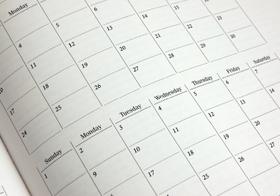If you are looking for a teaching job, then you probably understand how tough the employment situation is. Because of significant budget cuts in the public school sector, tens of thousands of qualified, experienced teachers are looking for employment. Add to that very sizable candidate pool all the newly-minted teachers graduating from our nation's 670 accredited schools of education. You can readily see how competitive the market is. Naturally, some areas of the country are more severely impacted than others. Within those areas, there will be a few school districts in a few communities that can hold their own. The issue with public school funding has much to do with the fact that a substantial portion of a school district's budget comes from local property taxes. School districts in affluent communities usually will fare better than districts with a decreasing tax base.
While this oversupply of experienced, qualified teachers is an advantage for private schools because it increases the applicant pool, this situation makes it much more competitive for those who want to secure a private school teaching job. Finding employment in a private school works differently than finding employment in the public sector. I suggest that you review my Job Search Resources to understand the mechanics of finding private school employment. I have covered the subject from every angle I could think of. I also spent 17 years in the corporate environment where one of my responsibilities was interviewing and hiring. It




























